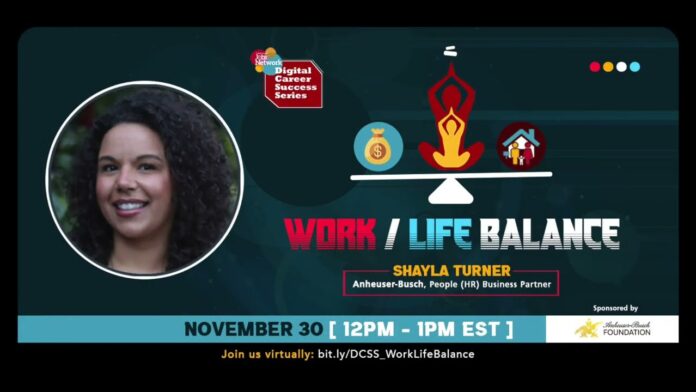In today’s fast-paced world, the concept of work-life balance has become increasingly important. As we strive for success in our careers, it’s easy to get caught up in the never-ending cycle of work, often neglecting our personal lives in the process. The result is a constant juggling act, where the demands of work spill over into our personal time, leaving us feeling burnt out, overwhelmed, and unfulfilled.
However, achieving a balance between work and personal life is not just about dividing our time equally between the two. It’s a multifaceted and dynamic process that requires us to prioritize, set boundaries, and make intentional choices to create a harmonious coexistence. In this article, we’ll delve into the intricacies of work-life balance, exploring its importance, strategies, challenges, and ultimately, its impact on career success and personal fulfillment.
Importance of Work-Life Balance
Work-life balance is not a new concept, but it has gained significant traction in recent years as people have become more aware of its crucial role in their overall well-being. At its core, work-life balance is about finding harmony between our professional and personal lives, allowing us to thrive in both without sacrificing one for the other.
One of the main reasons why work-life balance is essential is that it promotes overall happiness and satisfaction. When our time and energy are divided equally between work and personal life, we have a sense of fulfillment in both areas, leading to greater overall life satisfaction.
Moreover, work-life balance is vital for managing stress and preventing burnout. Overworking and neglecting self-care can lead to physical and mental exhaustion, leading to a decline in productivity and performance at work. It can also strain relationships and negatively impact our health. By balancing work and personal life, we can reduce stress levels, boost our mental and physical well-being, and ultimately, perform better in all areas of our lives.
Strategies for Balancing Work and Personal Life

Finding a balance between work and personal life is not a one-size-fits-all approach. What works for one person may not work for another, and it’s essential to find a strategy that aligns with your unique needs and priorities. However, there are some key strategies that can help anyone achieve a more harmonious work-life balance.
Prioritize and Set Boundaries
One of the most crucial steps in balancing work and personal life is learning to prioritize and set boundaries. It’s essential to determine what’s most important to you and allocate your time and energy accordingly. This means saying no to tasks or obligations that don’t align with your priorities or that will overwhelm you. It also involves setting clear boundaries around your working hours, unplugging from technology when you’re not working, and carving out dedicated time for personal activities and relationships.
Use Time Management Techniques
Effective time management is vital for achieving work-life balance. It’s about making the most of your time by prioritizing tasks, delegating when necessary, and avoiding distractions. Some popular time management techniques include the Pomodoro Technique, where you divide your work into 25-minute blocks with short breaks in between, and the Eisenhower Matrix, which helps you prioritize tasks based on their urgency and importance.
Practice Self-Care
Self-care is often overlooked in the pursuit of career success, but it’s a critical aspect of achieving work-life balance. Taking care of yourself physically, mentally, and emotionally is essential for your overall well-being and productivity. Make time for activities that recharge you, such as exercise, meditation, hobbies, or spending quality time with loved ones. Remember that self-care is not selfish; it’s necessary for maintaining a healthy work-life balance.
Benefits of Achieving Work-Life Balance

Achieving a balance between work and personal life has numerous benefits that go beyond just feeling fulfilled and happy. Here are some of the key advantages of maintaining a healthy work-life balance:
Enhanced Productivity and Performance
When we have a good balance between work and personal life, we’re more focused, energized, and motivated, leading to improved productivity and performance. When our personal lives are in order, we can fully invest ourselves in our work without distractions or stress.
Stronger Relationships
Balancing work and personal life also means having time for our loved ones. By prioritizing and setting boundaries, we can create space for meaningful connections with family and friends, leading to stronger relationships and a more fulfilling personal life.
Improved Health and Well-being
Neglecting self-care and overworking can take a toll on our physical and mental health. By achieving work-life balance, we can reduce stress levels, boost our immune systems, and improve our mental well-being. This, in turn, leads to decreased absenteeism and increased job satisfaction.
Challenges in Maintaining Work-Life Balance
While the benefits of work-life balance are clear, achieving it is easier said than done. In today’s fast-paced and competitive work culture, there are several challenges that can make it challenging to maintain a healthy balance between work and personal life.
Blurred Boundaries
With the rise of technology, it has become increasingly challenging to disconnect from work. Emails, phone calls, and other notifications can disrupt our personal time, making it challenging to switch off and unwind. The expectation to be available 24/7 can blur the boundaries between work and personal life, making it difficult to find a balance.
Fear of Falling Behind
In a society that values productivity and success, many people feel pressure to constantly be working and achieving. The fear of falling behind or not being able to keep up with colleagues can lead to longer working hours and neglecting personal life. This can create a never-ending cycle, where the more we work, the more pressure we feel to keep up.
Guilt and Societal Expectations
For many, the idea of taking time for personal activities or prioritizing self-care can bring feelings of guilt. We may worry about being perceived as lazy or not dedicated enough to our jobs. Society also places a high value on career success, often at the expense of personal life, further perpetuating the guilt associated with finding a balance.
Tips for Achieving Career Success While Balancing Work and Personal Life
Balancing work and personal life is an ongoing process that requires effort, intention, and flexibility. Here are some tips to help you achieve a healthy balance while still pursuing your career goals:
Be Intentional with Your Time
Rather than trying to divide your time equally between work and personal life, be intentional with how you spend your time. Prioritize tasks and activities that align with your goals and values, and let go of anything that doesn’t serve you or your well-being.
Make Use of Technology
While technology can be a barrier to work-life balance, it can also be a useful tool in achieving it. Use apps or programs to track your time, set reminders for breaks, and limit your screen time outside of work hours. You can also use technology to stay connected with loved ones, whether through video calls or shared calendars.
Communicate Your Boundaries
Be clear and assertive in communicating your boundaries with your colleagues and employers. Let them know when you’re not available, and stick to your boundaries even when faced with pressure or expectations. By setting boundaries, you’re also modeling healthy behavior for others, and they may follow suit.
Find Support Systems
Having a strong support system is crucial in maintaining a healthy work-life balance. Surround yourself with people who understand and respect your boundaries and can provide emotional support when needed. Whether it’s friends, family, or a support group, having people to lean on can help alleviate stress and make balancing work and personal life feel more manageable.
Conclusion
In today’s fast-paced world, finding a balance between work and personal life is essential for our well-being and happiness. While achieving this balance may seem daunting, it’s not impossible. By prioritizing, setting boundaries, and making intentional choices, we can create a life where work and personal life coexist harmoniously, enriching and empowering each other. So, strive for a true work-life balance, not a rigid 50/50 split, and watch as your career success and personal fulfillment flourish.
